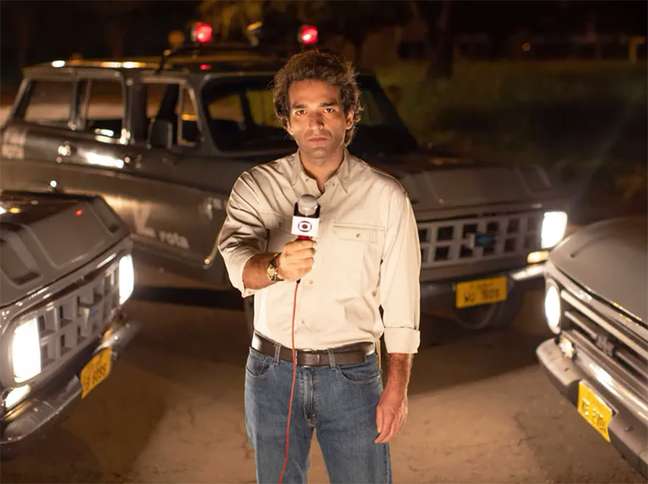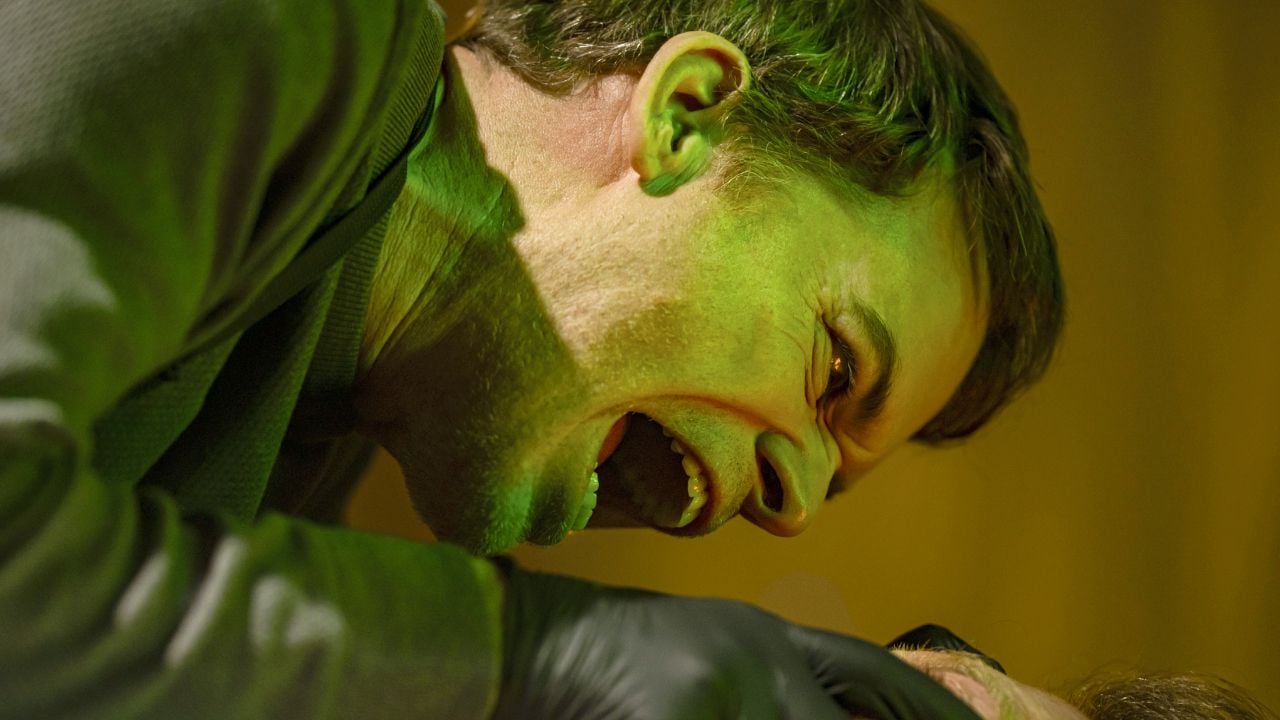
The series “Rota 66 – A Polícia que Mata”, premiered this Thursday (22/9) on the streaming platform Globoplay, is based on the book of the same name by journalist Caco Barcellos, which in 1992, long before the “Black Lives Matter” movement. , sparked furor for reporting the extermination actions of the elite troop of São Paulo’s prime minister, Rota, in the suburbs, which basically persecuted black and poor people.
“The expectation for the release is very high,” Barcellos said during the press conference for the series. “I spent seven years investigating this story. During the investigation process, I figured it would turn into a script.”
“I walked through the communities and, when I came across the story of someone who had been a victim of Rota’s actions, I tried to capture people’s dialogues, making them remember all the details of the incidents that led to the death of a child. , a brother, for example, who thinks about building these dialogues, imagining a future script. I have never left this topic aside, “she added.
In the series, Barcellos is played by Humberto Carrão (“Marighella”), who risks his life to denounce the apparent genocide.
“It was a huge responsibility for me, as an actor, and for the entire cast, writers and directors to be able to adapt a book like ‘Rota 66’ for audiovisuals,” said the actor. “The series, at the same time, is a very beautiful adventure, not only because Caco is a great journalist, but also because he portrays the ‘follow-up journalism’, which does so much in his reports. doing journalism “.
Carrão also talked about the preparation process for playing the reporter in the series. “I tried to learn things about the body, about how to listen. I have seen a thousand reports, from different times, since the series spans ten years. This creates a broth of references, and still has the affective. Of being Caco”, He has explained.
The series will not only show the journalist’s professional life, but also his personal side. “I was very tense before I saw the first few scenes, but I think I was better in fiction than in real life,” joked Barcellos, who also said he didn’t participate in the development of the series’ script, but collaborated in any way he could.
“My position was to cooperate as much as possible,” he explained. “I suggested to them, ‘Chasing people who don’t like my job, who don’t like me, to build a more complex character, perhaps.’ And they were very dedicated to investigating me, in a certain tension. What do they say about me out there? “
The plot of the series delves into the most violent period of Rota’s action, between 1970 and 1990. And what the reporter discovered during his investigation is that it was not only the bandits who were killed by the police. “Even if I consider killing a criminal serious, it is evident that killing innocent people who have not even committed an illegal act or a confrontation with the police was even more serious. It scared me a lot,” said Barcellos.
Speaking about the process of writing the book, the journalist explained that “the biggest difficulty of the process was living with the people who were victims of this violence, while the biggest motivation was to file a complaint. But this suffering does not paralyze. I, on the contrary, moves me, it is a fuel, my energy to continue “.
“I couldn’t count how many times I woke up with horrible nightmares, horrible screams. Evidently, I went through a therapeutic path to understand that it was these eliminated lives that accompany me,” he added.
Barcellos says he was thrilled to see his effort translated on screen. “Seeing everything I found visually made is special and exciting. I was touched by the actors’ interpretation,” he said.
The cast also features Lara Tremouroux (“Medusa”) as a journalist who works with Carrão, Adriano Garib (“Good Morning, Veronica”) as an experienced journalist and mentor to the main duo, as well as Aílton Graça (“Carcereiros” ). , Ariclenes Barroso (“Second Call”) and Naruna Costa (“Colônia”).
Naruna said that, to prepare for his role, he accompanied the Mães de Maio de São Paulo, an organization of the families of the nearly 500 victims of the so-called May 2006 crimes committed by the police. “It was impressive to hear how a death in a family generates other symbolic deaths, of affection, but, at the same time, it also generates other lives,” she said. “After all, many women have found themselves leaders within their communities.”
The actress said she brought a lot of her experience into her character. “I was born and raised on the outskirts of the South Zone of Sao Paulo, so I experienced a lot of this scenario that the series brings into my childhood and youth. It is very painful for those who have a direct relationship with these stories go through this pain and you can tell him, “he said. “My character, Anabela, is the translation of this force. She has had her life ravaged by this police violence.”
“Our country was founded by the death of many people, especially black people, and it still carries that reality. So the series is also about today,” he continues. “It is a story that does a strong service [a denúncia d]black genocide in Brazil. It is important that this topic reaches all audiences, with different points of view. It traces years of a Brazil unfortunately very close to what we are experiencing today. More than representing a character, I think about the representation I have in this project “, she concluded.
Speaking of this violent contemporary history, Caco Barcellos states that, at the time of writing, the “militia mentality” was rooted in the Rotta. “The militiaman is essentially lazy. The violent do not like to work, not even those in uniform. Because it is complicated to work, to investigate. It is easier, in quotation marks, to use the perversity of torture”.
Humberto Carrão, who accompanied the journalist on a report on Morro do Salgueiro as part of his research, said he experienced the impact of violence in this foray.
“It’s very complex, very sad, very violent. While Caco was interviewing a mother, I heard comments that a Troy had just happened, an unconstitutional method in which the policeman hides in the woods or in a house and waits for a young man. Considered suspicious to pass by. to execute him, “he said.
Despite this, Caco Barcellos is confident for the future. “I have hope in the new generations, the flags of identity mean gestures of hope. Young people are more aware and do not admit, as in the past, this brutality towards them. I have great hope that things will improve, the same I when I did that. ‘investigation in the past, “he said.
“I share with Caco the hope that things can change, but also the frustration and sadness for the hard work done in recent years and, even so, the number of violence remains high or even higher than it was 30 years ago”, he denounced the actor. “The reality continues and is even worse, as we live in a moment of stimulation and intention to return to that past”
“‘Rota 66’ is a difficult series, about the people who survive this scenario of violence, and which brings a very important political tool,” concluded Carrão.
A Boutique Filmes co-production, “Rota 66 – A Polícia que Mata” is written by Teodoro Poppovic, creator of “Ninguém Tá Looking” on Netflix, and directed by Philippe Barcinski (“Entre Vales”) and Diego Martins (“Hard”) .
The series had its first four episodes available at dawn this Thursday (22/9) and new chapters will be added weekly on the Globoplay streaming service.
Watch the trailer below.
+The best content in your email for free. Choose your favorite Earth Newsletter. Click here!
Source: Terra
Emily Jhon is a product and service reviewer at Gossipify, known for her honest evaluations and thorough analysis. With a background in marketing and consumer research, she offers valuable insights to readers. She has been writing for Gossipify for several years and has a degree in Marketing and Consumer Research from the University of Oxford.




